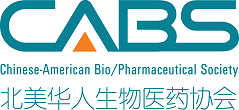Therapeutic antibody technology and development
Date: November 3, 2018 @ 1:00 pm – @ 6:00 pm
Location: Hanhai BioLabs (1633 Bayshore Highway, Suite 280, Burlingame, CA 94010)
Therapeutic antibody continues to be one of the brightest stars in the drug discovery and has dominated the attention across the spectrum of the pharmaceutical industry. An increasing number of pharmaceutical companies have enhanced their efforts in this competitive field. New technologies are being created and developed, while better antibody therapies and clinical candidates are rising along the horizon as potential treatment for various diseases to save and improve human life.
In this seminar, we have invited five experts in the therapeutic antibody drug discovery research to tell you their expertise and what are the latest advancement of the science and technology that you may consider to apply to develop your own antibody candidates.
Date:Nov. 3rd, Saturday, 1:00-6:00 PM.
Location:Hanhai BioLabs (1633 Bayshore Highway, Suite 280, Burlingame, CA 94010)
Agenda:
1:00 to 1:20 PM Check-in and networking
1:20 to 1:30 PM Welcome remarks from CABS.
1:30 to 2:10 PM AID and Phage Display in the Generation and Maturation of Therapeutic Antibodies. Mason Lu, PhD, Founder and CEO, MedAbome, Inc.
Abstract: Provide a brief review on the basic science of antibody molecules and the cutting-edge technologies for the development of therapeutic antibodies. Focus on the application of AID, APOBEC3 deaminases and phage display technology in antibody generation and maturation in the field of biopharmaceutical research and development.
2:10 to 2:50 PM A High Throughput and Versatile Single Cell Antibody Discovery Platform – AbTHENEUM. Chun-Nan Chen, PhD, CEO & CSO, Single Cell Technology, Inc.
Abstract: The best chance to find a low frequency hit is to capture a broad diversity of the immune response. Single Cell Technology uses affinity-maturated B cells on a platform that collects metadata per cell: binding activity against multiple screening molecules is correlated with native VH and VL sequence pairs. Case studies from antibody campaigns will be presented.
2:50 to 3:00 PM Break
3:00 to 3:40 PM Antibody Discovery: From Hybridoma, Phage Display to Microfluidics. Yonglei Shang, MD, MSc, Head of Antibody Therapeutics, Amberstone Biosciences, LLC.
Abstract: Therapeutic antibodies have become an increasing significant component in treating wide range of human diseases. Methods of therapeutic antibody discovery have greatly evolved over time. Hybridoma, phage display and B cell cloning are the main technologies for antibody discovery in the industry. These methods have relatively limited repertoire sampling capacity. Emerging technologies such as deep sequencing and microfluidics/microchamber have been integrated in the antibody discovery process to enhance the sampling of immune repertoires for rapid and high-throughput discovery of optimized antibody leads.
3:40 to 4:20 PM Bispecific Antibodies Engineering and their Potential Applications. Qiang Liu, PhD, Director of Antibody Engineering at Twist Bioscience.
Abstract: Monoclonal antibodies (mAbs) have had tremendous successes in treating variety of human diseases, in particular cancer and inflammatory diseases. mAbs are monospecific, having a single specificity to their targeted antigens. Despite the clinical successes, it is becoming ever more challenging to find effective disease modifying therapeutic targets suitable to naked mAbs. To overcome some of the limitation of monospecific antibodies, and to address diseases’ poly-pharmacology, bispecific antibodies (bsAbs) have been created to target two antigens simultaneously. Dual targeting can be used to bind two antigens on the same cancer cell to simultaneously block two signaling pathways, or improve the selectivity of cancer targeting to generate synergistic therapeutic efficacy. One clear success of bsAbs applications is to create new functionality, like the two approved bispecific antibody drugs: Amgen’s Blinatumomab, a CD19 x CD3 bispecific T cell engager for the treatment of Acute Lymphoblastic Leukemia, and Roche’s HEMLIBRA®which bridges factors IXa and X in the blood clotting cascade for the treatment of hemophilia A.
4:20 to 5:00 PM Single-domain Antibodies from Camelids and Sharks and Their Applications. Naibo Yang, PhD, SVP & COO of GenoImmune Therapeutics Inc (A BGI company).
Abstract: Single domain antibodies can be produced by scFv, but more easily, it can come directly from heavy-chain antibodies. Unlike traditional heavy/light chain paired antibodies found in most mammals, heavy-chain (only) antibodies were discovered in camelids (hcIgG) and sharks (IgNAR). These antibodies consist of only a heavy chain, and are more stable in higher temperature or high salt conditions.
Single-domain antibodies and its derivatives can be used in both diagnostics and therapeutics. The small size and higher stability is very suitable for being used as diagnostic reagents. Using single-domain derived structures can easily modify the avidity and apparent affinity of the antibody. Unique binding domain structures also help to reach hard-to-access active site. In some cases, this can be used to design novel targeted antibody drugs. The easy-to-manipulate structure is also a perfect tool to incorporate into bispecific antibodies or novel CAR-T designs.
5:00 to 5:40 PM Personal Journey to Antibody Drug Development. Haichun Huang, CSO, NovaRock Biotherapeutics.
Abstract: As the co-inventor of Nivolumab (anti-PD1 mAb) and Ofatumumab (anti-CD20 mAb), I will cover my personal story and journey in the discovery and development of therapeutic antibodies.
5:40 to 6:00 PM Refreshment and networking.
Speaker Background:
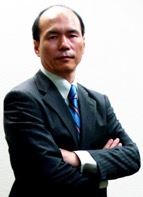
Mason Lu, PhD, is the founder and CEO of MedAbome, Inc. located in Fremont, California. He has been dedicated in the generation and development of therapeutic monoclonal antibodies (mAbs) for over 30 years. He contributed to many well-known therapeutic mAbs, such as Xolair® (anti-IgE, annual sales revenue was $2.3 Billion in 2016), Ligelizumab (anti-IgE, NDA in 2017), Trogarzo™ (anti-HIV, NDA in 2018), TNX-650 (anti-IL13, Phase III), Lampalizumab (anti-factor D, Phase III), and many other mAbs that are currently in pre-clinical to Phase I clinical trials in Genentech. Dr. Lu’s most recent research interest is focused on (1) Antibody diversity in B cell development; (2) Improvement of technologies for mAb generation, live-cell high-throughput screening (HTS), antibody humanization and maturation; (3) Immunotherapy with universal CAR-T for leukemia and solid tumors.
Prior to MedAbome, Dr. Lu was an assistant professor in MD Anderson Cancer Center, a founder of MabStar, Inc. and a cofounder of MabCom, Inc., a visiting professor in Northeast Forestry University and Chinese National Human Genome Center. He had been working as Research Scientist/Research Manager II in Tanox/Genentech, Inc. for 9 years. He has many publications and multiple issued patents on antibody-related work.
Dr. Lu received his medical degree from Shanghai JiaoTong University School of Medicine, M.Sc. degree from Shanghai Cancer Institute, and PhD degree from MRC-LMB and University of Cambridge. His postdoctoral training in neuroimmunology was at Baylor College of Medicine.
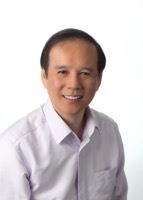
Chun-Nan Chen, PhD, is Chief Executive Officer and Chief Scientific Officer of Single Cell Technology, Inc. (SCT) located in San Jose, CA.
Dr. Chen received his postdoctoral training in Biochemistry Molecular Biology from UCSF, his PhD from Michigan State University, and held senior scientific positions at Celera Genomics, Applied Biosystems, Pharmageneis, SyStemix and DesignRx Pharmaceuticals. Dr. Chen is a registered United States Patent Agent.
Dr. Chen leads invention and development of a proprietary antibody discovery platform called AbTHENEUM at SCT and he is the co-inventor of 11 issued patents surrounding that platform technology.

Yonglei Shang, MD, MSc, started his biotech career at Genentech in 2004. During his tenure at Genentech, he has participated or led 16 therapeutic antibody pipeline programs with focus on development of bispecific antibody (TDB) and targeting multiple trans-membrane proteins such as GPCR, ion channel proteins. He also actively involved in technology innovation including establishment of dual expression system in E. coli and mammalian cells, implementation of baculovirus assay for antibody cyno PK prediction. His expertise in therapeutic antibody development includes antibody discovery, humanization, affinity modification and developability optimization etc. Recently, he has joined Amberstone Biosciences as the Head of Antibody Therapeutics, focusing on a cutting-edge microfluidics technology on deep and functional antibody screening.

Qiang Liu, PhD, currently is Director of Antibody Engineering at Twist Bioscience, is highly experienced in advancing biotherapeutics, monoclonal antibodies, ADCs and protein therapeutics, from early discovery to clinical trials. As a scientific leader with 20 years of diverse biotech industry experiences in antibody discovery, characterization and engineering, he has deep understanding of how to successfully develop antibody and protein therapeutics and broad knowledge ranging from target validation, assay development, lead generation to manufacturing cell line generation. He is an innovative thinker with over 16 issued and filed patents covering broad research areas.
Dr. Liu started his industry career as a scientist at Sangamo, later he moved to Amgen as a Principle Scientist and then joined Takeda California as Director of Antibody Technologies, where he had built a fully functional antibody discovery and development team, and is responsible for in-licensing and in-house development of several key antibody technologies to support therapeutic and diagnostic antibody needs. Before joining Twist, Qiang also served as Vice President and CTO at Immune-Onc Therapeutics, Inc.
Dr. Liu received his PhD in Microbiology and Immunology from Duke University and did his postdoctoral work at Scripps Research Institute.
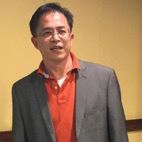
Naibo Yang, PhD, is currently the SVP & COO of GenoImmune Therapeutics Inc (A BGI company), leading the BGI's therapeutics branch focus on cutting-edge cancer immunotherapies, including NeoAntigen-based T cell therapy, CAR-T, TCR-T and monoclonal and bispecific antibody therapies for immune checkpoint inhibitors etc. Previously, Dr. Yang was the Sr. Director of Immunogenetics, Complete Genomics Inc, in charge of the immunological studies employing the NGS technology, and the development of antibody therapeutics as well as immune repertoire studies and applications.
Dr. Yang had experience and played leading roles in various biotech companies in US and China including Exelixis, Affymax, BioChain Institute. He had more than 20 years of the drug discovery research and management expertise. Dr. Yang was the first president of CABS and current board member. Dr. Yang got his PhD in Physiology from Thomas Jefferson University and received postdoctoral training at Stanford University School of Medicine.
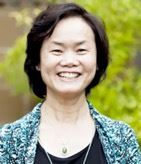
Haichun Huang, Before NovaRock Biotherapeutics, Ms. Haichun Huang was Director of Hybridoma Research at BMS/Mederax Redwood City in California. She is the co-inventor of Nivolumab (anti-PD1 mAb) and Ofatumumab (anti-CD20 mAb). The team she built and led was the first to develop therapeutic antibodies using the human immunoglobulin transgenic mouse platform developed by Medexex, and involved in the discovery of more than 200 target antibodies. Currently, these therapeutic antibodies against tumor immunity, tumors, cardiovascular, fibrotic and autoimmune diseases are found in pipelines of major pharmaceutical companies around the world, such as Amgen, Pfizer, Novo Nordisk, Fibrogen, Genmab, etc. These include 18 antibodies that have entered clinical stages and more than 50 antibodies in preclinical phases. As the co-inventor of 133 antibody research and development patents, Ms. Haichun Huang is one of the world's best experts in the discovery and screening of hybridoma antibodies.
.
